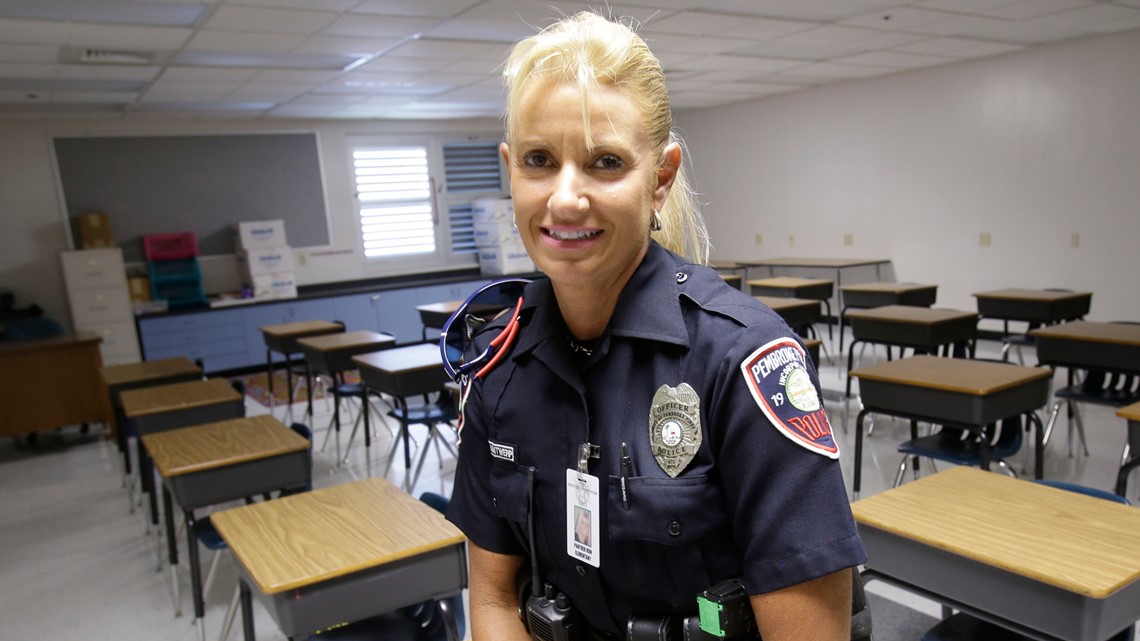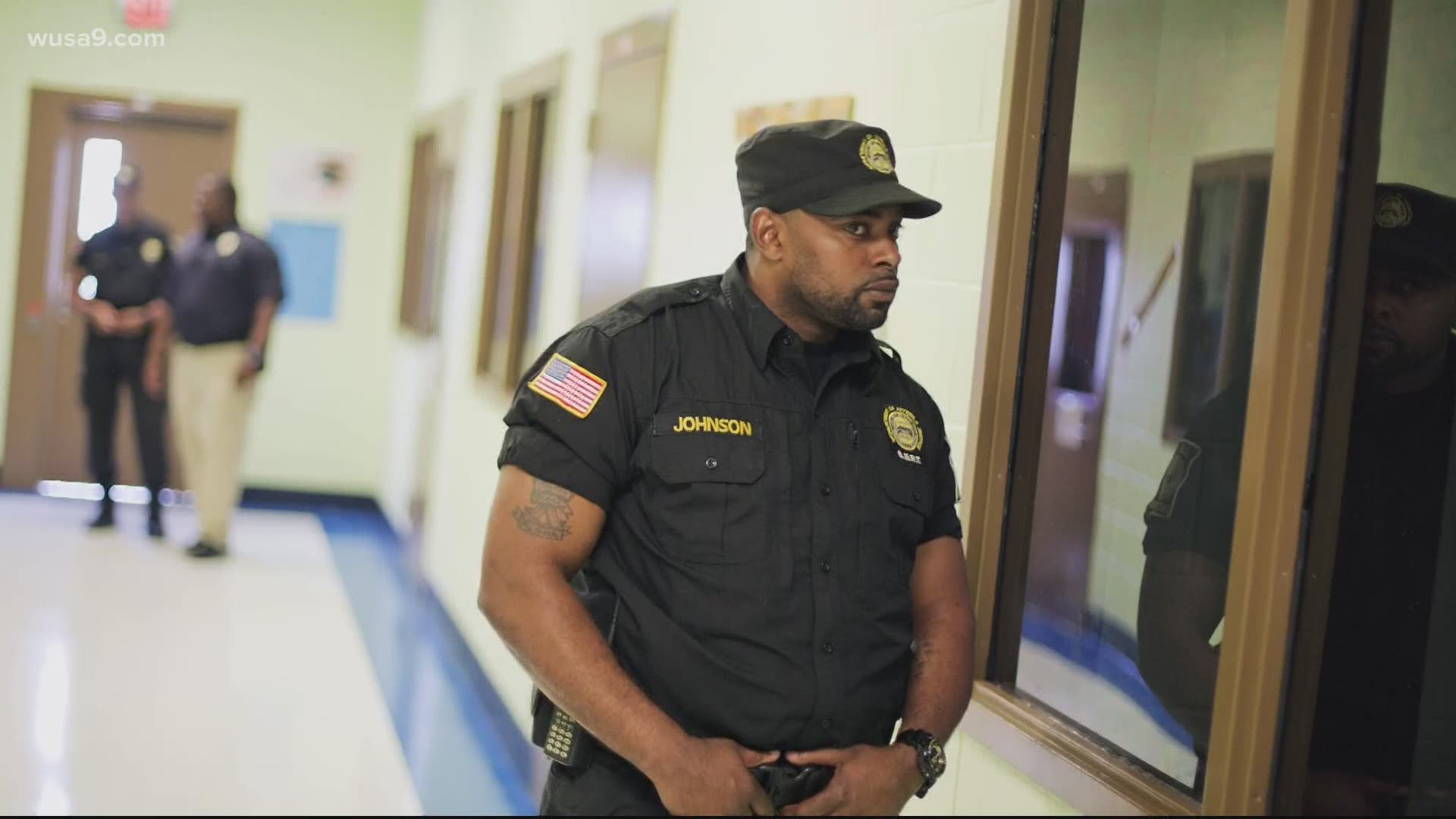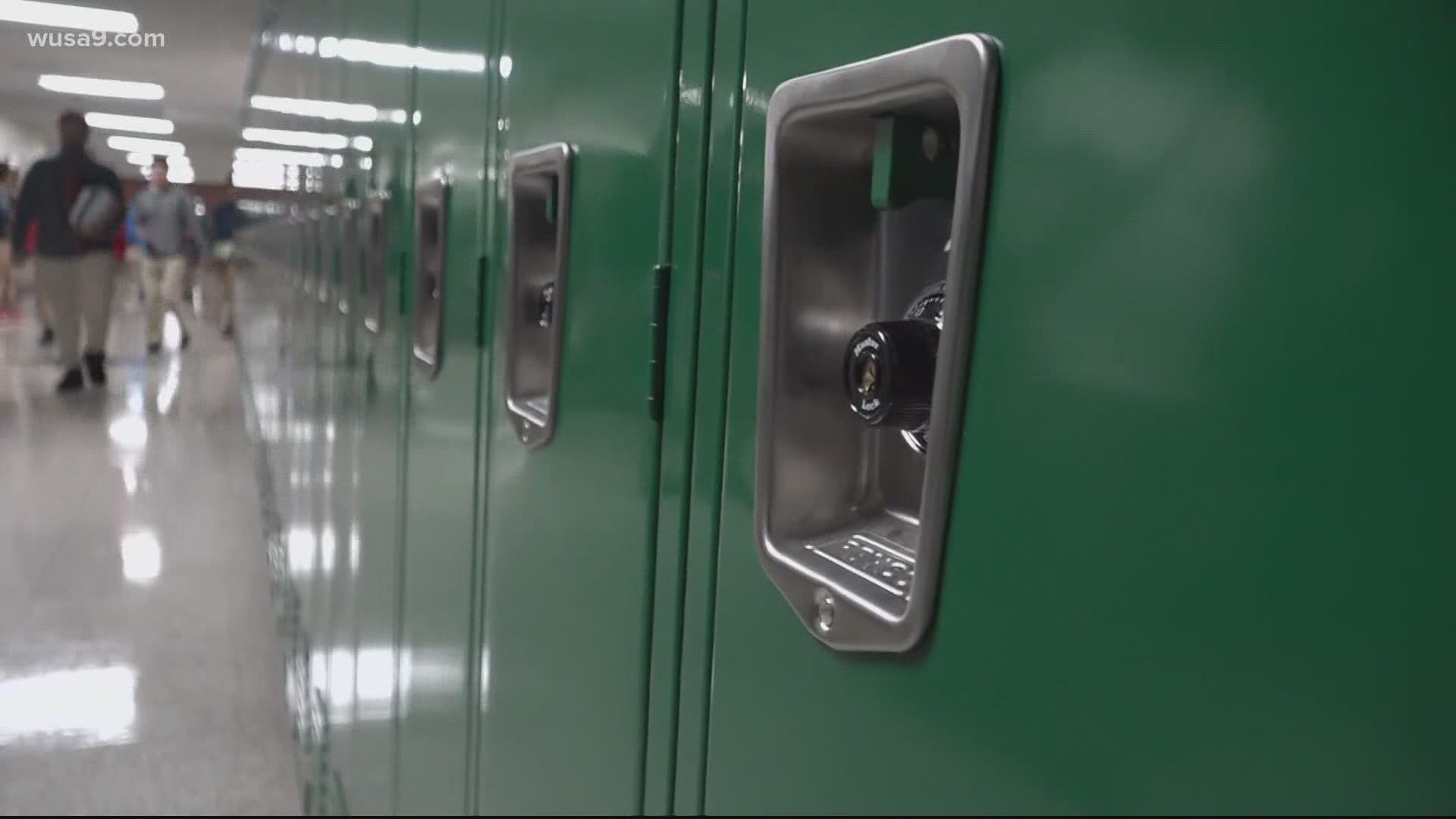RICHMOND, Va. — Rodney Robinson, the 2019 National Teacher of the Year, said he believes the presence of Student Resource Officers in Virginia schools is feeding the school to prison pipeline. Now, he's calling on the Virginia General Assembly to reallocate that funding to provide more counselors in schools.
"They're handing out criminal charges for something as simple as a school fight," Robinson said. "Swiping headphones is now a felony if they get caught by the school resource officer. These are the types of things that contribute to the school to prison pipeline."
Thirty-eight percent of people who responded to a WUSA9 Instagram poll said they didn't know what an SRO is. So let's explain that first.
The National Police Foundation describes Student Resource Officers, or SROs, as sworn law enforcement officers assigned to a school on a long-term basis. They said an SRO is specially trained and performs three main roles: law enforcer, mentor/counselor, and educator.
But Robinson said the training SROs receive in Virginia doesn’t give them the necessary tools to deal with kids.
"They're not trained to deal with the adolescent brain development and understanding that kids are different than adults," Robinson said. "They don't have the training that teachers go through and they don't have the degrees that teachers and counselors and principals have to work with you."
Robinson continued explaining SROs aren't given the necessary skillset to effectively mitigate school situations.
"They only know how to be police officers," Robinson said. "And when you're dealing with bad lessons you need people who can come in and de-escalate situations. We need people who can put in restorative practices, people who can teach children how to learn from that bad behavior, and cops don't do that."


Robinson teaches social studies and history at Virgie Binford Education Center, a school inside the Richmond Juvenile Detention Center. He said he chose that school in order to better understand the school-to-prison pipeline, a pipeline that he believes is fueled by the presence of SROs in Virginia schools.
"The vast majority of my students say their first charge came from school, whether it was disorderly conduct or resisting arrest or an assault," said Robinson.
The Civil Rights Data Collection is a biennial survey required by the U.S. Department of Education’s Office for Civil Rights since 1968. According to their data from the 2015-2016 school year, Virginia schools, in a single year, referred 16 students for every 1,000 students to law enforcement agencies. That’s a rate nearly three times the national rate. That data was self-reported by schools and the highest rates came from middle schools.
SROs in Virginia are trained by the Virginia Department of Criminal Justice Services. WUSA9 reached out to them for comment but hadn't heard back at the time of publication.
Mo Canady, the Executive Director of the National Association of School Resource Officers, said SROs should be receiving at least basic training in student needs.
"We as a national association take a very broad national approach to what you know an SRO shouldn't be doing," Canady said. "We train them on things like the adolescent brain, adolescent brain development. We train them on implicit bias. We have a section in our basic course that we train them around special needs students."
WUSA9 reached out to Speaker Eileen Filler-Corn for comment. She responded with this statement:
"We have seen and heard the pain of so many across the country and in our Commonwealth. As leaders, it is our job to listen, but even more so to act. We will move forward on legislation to address police reform in Virginia in the special session this summer."


